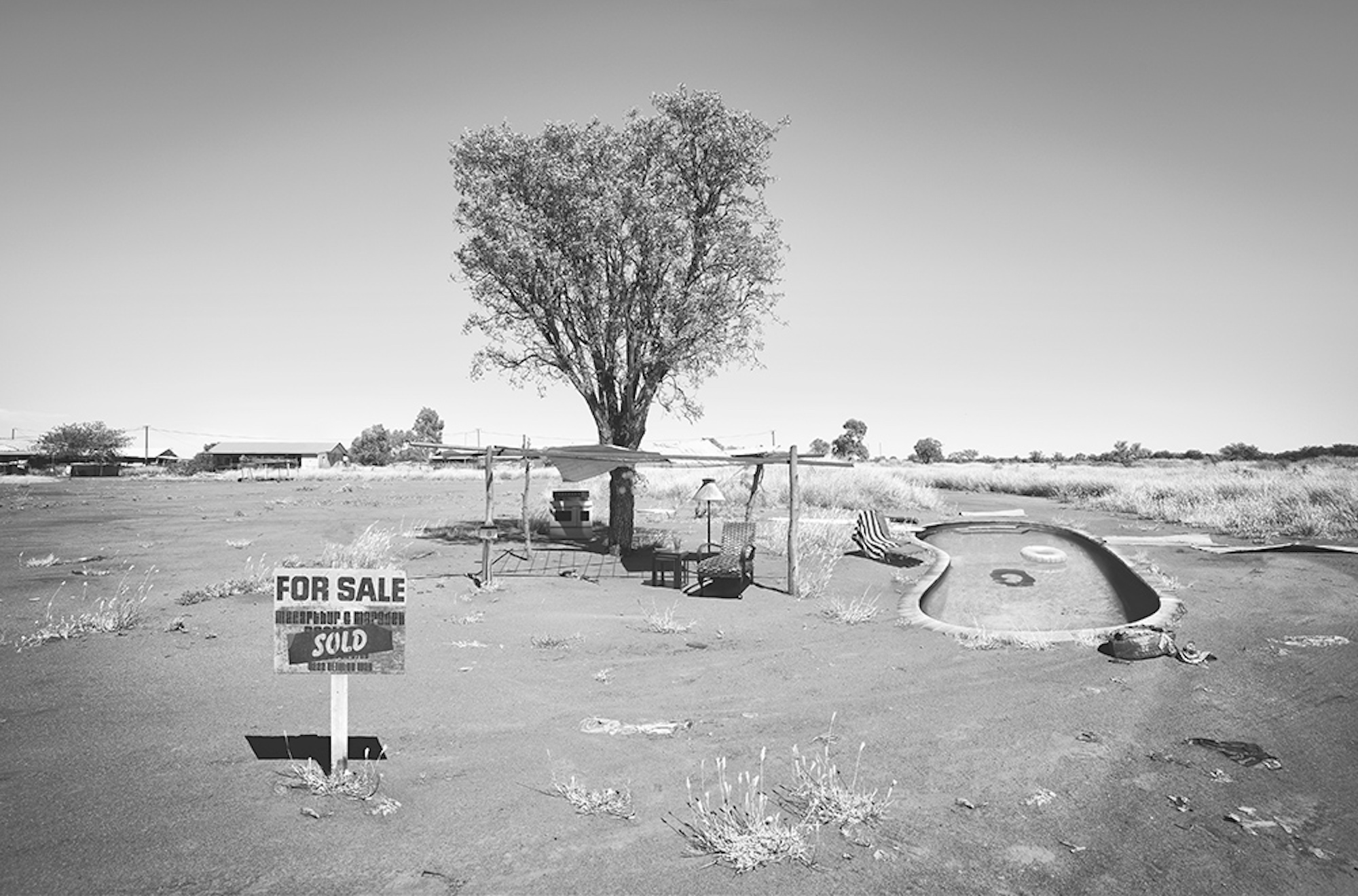
“Le concept juste est ici la haine identitaire, la haine de l’origine, et non pas le ‘racisme‘. … Cette haine peut s’appuyer sur toute forme d’origine : biologique, ethnique, familiale, culturelle, linguistique, historique, géographique… … C’est un mode d’être haineux, un recours à la haine pour pouvoir exister.” 16
“… il y a des gens qui soudain manquent d’appui pour exister et qui, au lieu de basculer dans la déprime, se mettent à haïr celui dont ils pensent qu’il a cette appui, qu’il le leur a peut-être pris, ou volé; et dans cette haine, ils trouvent l’appui qui leur manquait pour exister. … Cette haine devient collective par un surcoît d”amour‘: on aime être ensemble à haïr le même objet. … L’abus, ce n’est pas de ‘généraliser’, c’est de haïr l’autre dans son essence, son concept, son origine.” 8
“… Le ‘racisme‘, c’est l’exclusion haineuse. On croit le réfuter en mettant le phobique-haineux en contradiction avec lui-même; il sera secoué qu’il devra regagner la voie de la raison. Or la peur et la haine c’est ce qui lui sert à combler les trous de la raison. …” 20
“… Inutile, d’entasser des raisons contre; il s’agit d’un point de folie de la raison … ‘Mais quelle raison avez-vous de haïr ces gens là? – Aucune. … – Mais d’ameuter contre eux, cela vous donne quoi? – Cela m’excite, et libère mon énergie; cela me fait exister; quoi de mieux? …’”
“En un sens, le ‘racisme’, dans ses formes modernes, est une volonté pathétique de rationaliser l’identité; de la rationner, en vain, bien sûr; la soif et la peur identitaires n’ont jamais leur ratio; ou leur ration. En même temps, le ‘racisme’ refuse la rationalité – quand elle n’est pas la sienne. Un simple raisonnement ferait voler en éclats, comme foncièrement déraisonnables, toutes ses vues. Ainsi le ‘racisme’ est juste assez rationnel pour ne pas l’être: il se cramponne à une raison qui est la sienne et il ignore l’autre raison. Telle est sa passion narcissique. …” 33
“… Et dire d’un ton très chaud : ‘Mais on est frères, enfin !’ n’empêche pas que les frères s’entre-tuent. …” 30
“Pour certains, haïr l’autre – qui n’est pas du groupe, ou qui a une autre odeur – est une chose naturelle, normale.” 30
“… dans toute phobie ou haine de l’autre, il y a besoin de fixer l’autre, de l’encadrer … ” 18 “Quelqu’un qui vous exclut, vous inclut dans un cadre qu’il a défini pour vous à l’avance. Il déclare : vous êtes ceci ou cela ; ou bien : vous ne pouvez pas penser cela sachant que vous êtes dans tel cadre. Il veut vous réduire, vous couper de votre potentiel d’être, de vos racines d’avenir. …” 372
“… Les phobiques se lèvent et hurlent de peur dès que quelqu’un risque de ‘violer’ leur cadre. Car pour eux, le cadre c’est l’être même, et non une pause ou une scansion de l’appel d’être. S’ils fétichisent le cadre, s’ils sont prêts à tuer pour, c’est que le cadre c’est eux. Ils confondent le bien et la peur du ‘mal’. A la limite, cette phobie du potentiel d’être qui pousse à la réduire à ce-qui-est, à une valeur, un principe, un cadre, un bâtiment, un emblème, c’est cela qui fait mal, au prochain et à soi-même. Le mal c’est de se donner une origine fétiche en forme de ‘cadre’ et d’y rester ; ou de faire la même opération pour l’autre, pour les autres, pour les y enfermer.” 372
“… La haine identitaire suppose les diverses origines irréductibles entre elles, et irréductibles à une même origine (humaine, universelle…). …” 18
“Souvent, les ‘racistes’ sont des gens qui ont perdu contact avec leur origine, qui ne savent comment la retrouver; ils trouvent dans leur haine un support d’être qui remplace cette origine; qui leur en donne une autre, à la place, neuve et maniable.” 34
“Une identité est tolérante envers une autre si elle se sent plus forte … le remède serait que l’identité ambiante se sente assez sûre d’elle pour n’avoir pas besoin d’humilier la minorité. Certains naïfs croient calmer la majorité inquiète en faisant l’éloge des autres : ‘Mais enfin, ces gens (de la minorité) sont cultivés, intelligents… – C’est bien pour ça qu’ils sont dangereux, ils nous éclipsent! – Mais ils apprennent votre culture, vos traditions! – Justement! un jour ils vont nous en chasser, de notre culture!'” 30-32
“Enseigner la tolérance aux enfants est un problème. Il n’est pas sûr qu’ainsi on ne les mette pas en danger. … Leur apprendre à accéder à leur richesse les aiderait indirectement à être plus tolérants, c’est-à-dire plus résistants : si leur champ de l’Autre est assez vaste, aucun autre réel ne peut l’épuiser ; et eux seraient moins contraints de le fixer, ce ‘champ de l’Autre’, sur un homme ou sur un groupe – à haïr ou à exalter.” 38
“La ligne de partage … est … entre ceux qui ont besoin de la haine identitaire comme d’un appui pour exister et ceux qui n’ont pas le besoin vital de cet appui pour structurer leur espace d’être. (Ils peuvent en passer par la haine sans y rester.)
Cette ligne de partage est souvent plus qu’une ligne, un abîme : entre ceux qui ont peur de sortir du cadre – qu’ils sont pris pour contours de leur être – et ceux qui peuvent en sortir, y revenir, le transformer ; entre ceux qui ont un besoin vital d’identité cadrée, et sans faille, quitte à la combler grâce aux cadavres des autres, et ceux qui peuvent se permettre – donc permettre aux autres – des failles identitaires dont ils savent qu’elles peuvent changer, se déplacer.” 44
“… C’est déjà bien si ceux qui vous méprisent ne passent pas à l’acte pour prouver dans le réel que leur mépris était fondé. Si ceux qui vous méprisent sont sûrs d’avoir raison, et n’ont pas besoin de justifier leur mépris, de l’inscrire, vous êtes sauvé; ou presque. …” 22
“La forme minimale du ‘racisme’, c’est de définir l’autre; la forme maximale, c’est d’en finir avec. Le deux se touchent et se nourissent de la même amertume.” 294
“Quand à prédire ce que fera un homme ou un groupe d’après ses opinions, c’est risqué. Au-delà de l’opinion, du comportement, il y a le mode d’être. Le mode d’être haineux passe à l’acte dans certaines conditions (notamment en groupe, si le chef ordonne ce passage) ; mais souvent, c’est indécidable.” 15
“Plutôt qu’en finir avec le ‘racisme’, peut-on écarter ses stigmates, faire sauter ses fixations? empêcher son coup d’arrêt? déjouer cette passion, jouer autrement de son matériau ? faire qu’un discours cesse de transmettre la peur qui l’inspire et l’horreur qui le fonde ? Plutôt de s’organiser contre le ‘racisme’, peut-on le désorganiser ? …” 124
“Il faut comprendre sous quel angle cette affaire de ‘racisme’ est sans issue, sans espoir ; oser l’aborder sous cet angle, par ce point de souffrance qui exclut bien des leurres et des attentes. Passé ce point, s’ouvrent des routes ardues, praticables, aux lisières du trop-humain, des troupes humaines…” 125
“On préconise cette ‘solution‘ contre le ‘racisme’ : que chacun – et chaque groupe – tienne à son image … mais q’il supporte celle du voisin et ne vienne pas l’asticoter. Droit à la différence, ça s’appelle … Cette solution est possible tant que l’espace de jeu est limité : ‘cultiver son jardin’ s’il est enclos … Or le problème est que les frontières vacillent; migrations de masse; les clôtures craquent; … les limites s’effacent ; les images se brassent sur le marché ; vive concurrence, haute tension d’imaginaire … Et dans ce faux contact, étincelle d’angoisse, flambée haineuse… … Le ‘racisme’ a une dimension politique ; il met en jeu le lien social. …” 136/137
“Pour certains, l’issue de l’impasse avec l’autre, c’est l’assimilation. … Les champions de l’assimlilation finissent par déchanter ; leur naïveté un peu perverse en prend un coup devant les retours en force de la différence oubliée. Car la différence, elle, n’oublie pas. … il y a toujours un reste qui échappe. … Là est le hic : on croit s’assimiler à un groupe, et l’on se retrouve assimilé à l’un des nœuds dont il est le sac. On s’assimile parfois à l’inconnu de l’autre, à ce qu’il ignore de lui-même ; à ce qu’il refoule ; et la posture bouc émissaire n’est pas très loin …” 138-141
“Certains ont l’illusion – la ‘certitude’ – qu’il faut d’abord, de toute urgence, ‘résoudre’ ces problèmes identitaires, par une identité solide, définie, cadrée, qui tienne la route, où l’on puisse se réfugier à tout moment ; tandis que d’autres font le constat, étonné ou ahuri : qu’il n’est pas besoin pour vivre d’avoir en main ‘son’ identité, qu’en un sens elle n’existe pas comme telle, sinon comme le processus de sa propre quête. … L’identité est non pas un ‘faux problème’, mais un problème ouvert, passionnément insoluble, irriguant d’autres problèmes de la vie ; que c’est une question en mouvement, où le sujet se demande non pas ce qu’est ‘vraiment’ son origine mais ce qu’il peut faire avec ; ce qu’il en fait. … Beaucoup confondent ‘perdre l’identité’ et en avoir une fragmentaire … Se dégager de ce dilemme, c’est surmonter la peur d’être sans identité – en fait, sans identité absolument définie.” 146/147
Le “‘mythe de la pureté’, c’est un fantasme de pureté ; un mythe c’est un fantasme stabilisé, habité par des foules, par des mémoires qui se le transmettent parce qu’il leur sert de point d’appui. … Ce fantasme de pureté exprime l’angoisse devant ce qui de nous-mêmes nous échappe ; angoisse et fatigue devant l’altérité: quand on en a assez de faire face aux altérations qui déferelent.” 303-305
“Dire que l’identité est un processus, c’est la penser comme un capital de départs, à partir de l’origine, d’où une pulsion d’identité opère, permettant de s’identifier à certains gestes et de s’en désintifier.
Du coup, avoir un ‘problème d’identité’, c’est mal supporter les passages à vide par où passe une identité, lorsque tantôt elle s’accroît, tantôt elle se retire sous l’effet de cette pulsion. En ce sens, le ‘raciste’ a un problème d’identité en impasse ; soluble uniquement dans une identité fermée, un retrait narcissique. … L’identité est … un processus mû par le jeu d’une pulsion identitaire (identifiant-désidentifiant) dont le mouvement est possible lorsque au départ le sujet n’est pas cloué, identifié à une situation, mais rattaché à des potentiels qui permettent de changer de lieu, … de ‘local’ psychique … Beaucoup savent ‘faire des choses’ mais n’arrivent à rien faire car ils ne peuvent s’engager dans le processus identitaire ; ils ne peuvent rien faire qui leur fasse traverser une frontière identitaire – celle du lieu, de l’institution, du groupe qui tenait lieu d’origine. …” 331-334
“Le remède-‘miracle’ qui permet ce processus de déplacement, cette capacité de compter, avec l’autre et pour l’Autre, cela s’appelle penser. … Penser, c’est pouvoir faire mouvement symboliquement, mouvement de s’exiler d’une image pour la traduire dans une autre, à travers un passage à vide. C’est faire travailler une sorte de pulsion migrante, traductrice, interprétante, qui passe par des fragments dispersés de soi-même. … Penser, c’est être capable d’accepter certaines irruptions d’étrangeté, comme des éclats d’origine, des fragments d’impensable. Car l’origine est impensable. …” 334/335
“Quand aux séries de ‘clichés’ qui ponctuent un processus identitaire, ce sont des achèvements… provisoires. Au fond, une identité est une suite de dépots identificatoires qui s’articulent dans une histoire, ou pas. Tant que l’histoire n’est pas achevée, vous êtes dans l’histoire ; quand l’identité se ferme, vous êtes hors de votre histoire. Une façon d’être hors de son histoire, c’est d’être … Identifié à un fragment de son origine. …” 336
“Comment, [le raciste], peut-il se libérer de cette peur, de cette enfermement?” 45
aus: Daniel Sibony: Le “racisme” ou la haine identitaire. Paris: Christian Bougois 1997, hier stark umgruppiert…
Abb.: Westboro Baptist Church, Wikimedia, im Internet.
08/14





